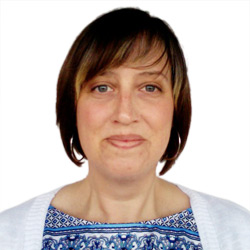

|
Vocal Psychotherapy is a model of music therapy that comes out of the use of music to support a client’s physical, mental, and emotional health. The technique was invented by Dr. Diane Austin, who describes it as follows: “Vocal Psychotherapy is the use of breath, sounds, vocal improvisation, songs, and dialogue within a client-therapist relationship to promote intrapsychic and interpersonal growth and change”.
In other words, combining our voice with music can help to heal us, both in our relationship with ourselves and with others. When a vocal psychotherapist creates a safe space for a client to express his or herself, the client can explore many parts of their life through music.
What can I expect from vocal psychotherapy?
There are two main techniques in Vocal Psychotherapy: vocal holding and free associative singing. Vocal holding is a type of vocal improvisation supported by a secure, predictable repetition of two chords played on a piano. Free associative singing is the term used when words are used in vocal holding. Clients are free to try one or both of the techniques, as they prefer.
A typical Vocal Psychotherapy session includes some conversation to establish the goal for the session, the use of vocal holding and/or free associative singing, and then some review to conclude the session.
Like any counseling or therapy experience, there can be a variety of outcomes from vocal psychotherapy. It is an act of bravery to be willing to make a relationship with a therapist, and when the relationship is built on trust and safety it can support you through your self-exploration. I have experienced being both the therapist and the client, and I have learned more about myself from Vocal Psychotherapy than any other therapy I have tried.
Many people have difficulty finding their voice when they need it. It is often hard to speak up for yourself or to ask for what you need. Sometimes we know where this difficulty comes from, and sometimes we don’t, but vocal psychotherapy can help you find your voice and to build a relationship with it, so that you can use it when you want to and need to.
Vocal Psychotherapy is a very effective way to find your inner strength and to increase your self-awareness. It works well on its own, or paired with traditional counseling techniques. People can explore many parts of themselves through music - if you are interested in self-discovery though music, than Vocal Psychotherapy could be good choice for you.
I have been an accredited music therapist since 2006, specializing primarily in working with people who have experienced trauma. My main areas of practice are vocal psychotherapy, grief and loss, and therapeutic songwriting. I have a Bachelor of Music Therapy, a certificate in Advanced Vocal Psychotherapy, and am a classically trained pianist.
My other love is performing - I've been playing and singing in folk rock bands for the last 15 years. My favourite thing to do is writing and recording songs with the talented musicians I've been lucky enough to make music with.
Sometimes, to create change in our lives, we need a shift in our perspective. Vocal psychotherapy offers a different way of experiencing ourselves, getting away from established thoughts and patterns and giving opportunities to learn about the parts of us that help and hinder us in our daily lives. I know personally how much joy, sorrow, frustration, self esteem, and connection can be created by music and worked through with the voice.
The brilliance of music is that it is fluid – music can be whatever we need it to be, and people can have relationships within music at whatever intensity level works for them. I believe that music is a connective tissue - it bonds people to experiences, to other people, and to their sense of self. This bonding is deepened by including the voice, the most personal of all instruments. Acceptance of the self is possible through gentle exploration, and through acceptance, change can occur.

Individual Session: $90/session (there is no charge to new clients for the first introductory session)
**A reduced fee is available for students or those on a limited income
Do I need to be a singer to try this therapy?
No. Anyone can benefit from vocal psychotherapy, and you do not need to be an experienced singer.
Do I have to sing?
Vocal Psychotherapy is built on the use of the voice, but singing is only one way that we use our voices. Many clients use their breath, make sounds, speak in rhythms, and so on. The amount of singing you do is up to you.
Can I use my extended health benefits to cover the cost of vocal psychotherapy?
Unfortunately at this time, vocal psychotherapy and music therapy are not covered by most health benefits plans. If your benefits plan covers music therapy services, you will be able to submit receipts to your plan for reimbursement.
Where can I park?
There is some 1 hour free parking and plenty of metered parking around the studio. The studio is a couple of blocks away from the 84 UBC/VCC STATION bus route on West 2nd Avenue.
Do you charge tax?
No. At this point there is no tax charged on the session fee.
Do you offer a sliding scale?
No. The first introductory session for new clients is free, which will give us an opportunity to meet and discuss whether vocal psychotherapy is the right therapy for you. Any financial concerns or questions can also be discussed at this time, and a reduced rate may be offered to students or clients living on a low income.